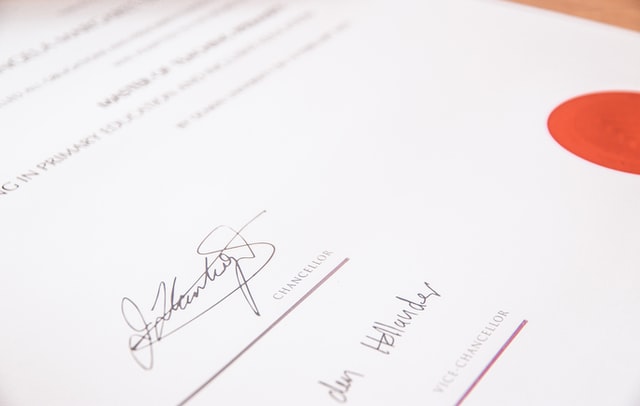15 Nov Changes in NSW regarding paper Certificates of Title

The Real Property Amendment (Certificates of Title) Act 2021 came into effect on 11 October 2021 and from this date, paper Certificates of Title were abolished and NSW Land Registry Services cancelled all paper Certificates of Title. All property dealings will now have to be lodged electronically in NSW.
All current Certificates of Title have no legal effect and the Registrar General will no longer issue paper Certificates of Title for any reason.
What does this mean for unregistered mortgages and how can you protect your interest under an unregistered mortgage?
Unregistered mortgages secured by possession of a Certificate of Title will no longer be able to be secured this way as Certificates of Title are now electronically held and the paper title deed no longer has any legal effect.
The owner of the property can deal with the property without your knowledge or consent.
There are 2 ways in which to protect your interest as a lender pursuant to an unregistered mortgage:
1. register the mortgage, if the loan terms permit this; or
2. register a caveat to protect your interest under the mortgage.
Registering your unregistered mortgage
Registering your mortgage would afford you the greatest protection, and will also ensure that your loan would take priority against any other unregistered mortgages that may exist and are not registered on the title of the property. The enforcement powers of a registered mortgagee are greater than that of a caveator or equitable mortgagee.
If there is a first registered mortgage over the title, you will need to ensure that the first mortgagee is made aware of your mortgage so that your mortgage would take priority over any further advances by the first mortgagee to the borrower above and beyond the amount secured by the first mortgagee over the property at the time of the notice. The first mortgagee may also require you to enter into a Deed of Priority to protect their loan.
Registering a Caveat to protect your unregistered mortgage
You may also register a caveat rather than registering a mortgage to protect your interest. A caveat should always be lodged quickly after the loan has been advanced and the unregistered mortgage is granted as the order of registration of documents on the title deed determines the priority of interests regardless of the date the loan was advanced.
How do you register your mortgage or caveat?
You will now need to comply with the documentation requirements of NSW Land Registry Services and strict verification of identity (VOI) standards for all parties signing the mortgage.
The same VOI requirements apply if you are to register a caveat, however the caveat can be signed by your solicitor or licenced conveyancer and lodged on your behalf, whereas a mortgage would need to be signed by the parties to the mortgage.
Both a mortgage or a caveat must be lodged electronically by a member of the electronic conveyancing platform PEXA who would need to ensure that all requirements are observed.
How will these changes affect you? To discuss these changes with one of our experienced Commercial Law Team, please contact Solari and Stock on 8525 2700 or click here to request an appointment.
Article written by Valentina Abouzeid.
Photo by Lewis Keegan on Unsplash